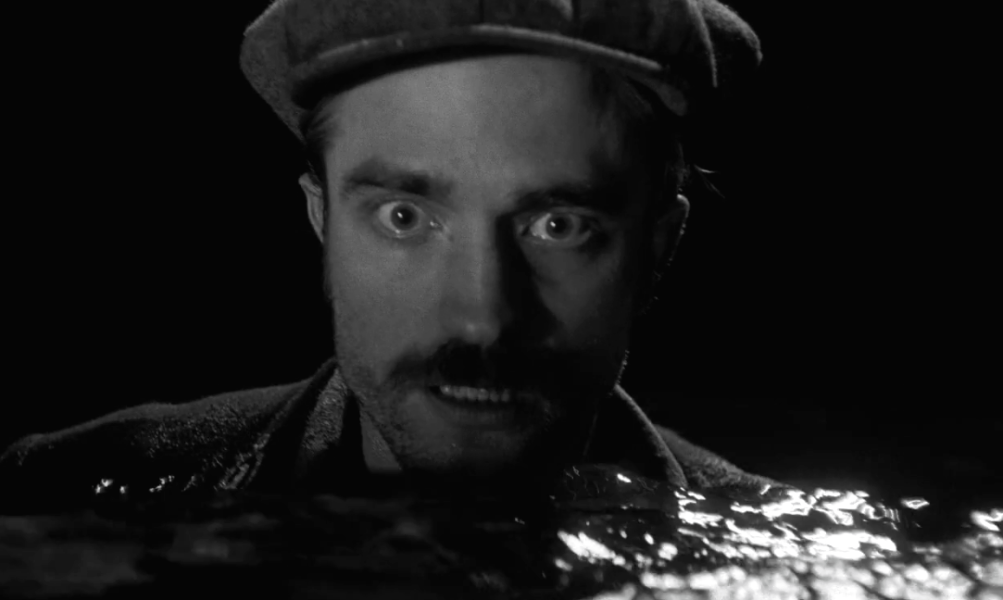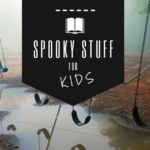
THE LIGHTHOUSE

Starring: Willem Dafoe, Robert Pattinson
Directed by: Robert Eggers
Written by: Robert Eggers, Max Eggers
In the late 1890s, new wickie (lighthouse keeper) Ephraim Winslow (Robert Pattinson) arrives at his first post — a remote island off the coast of New England. There, he finds himself under the supervision of Thomas Wick (Willem Defoe), a much older and much more difficult lighthouse keeper, for four weeks of duty. As the two men settle into their responsibilities, they quickly find themselves at constant odds. Their animosity builds as the days pass, slowly eating away at their civility and good sense.
As time passes, both men begin to succumb to a growing obsession with the lighthouse that consumes them in different ways. Odd events begin to occur, from the discovery of mermaid totem in Winslow’s mattress to Wick’s odd behavior around the massive lens in the lighthouse above them, and things begin to look very different than they first appeared. When a dangerous storm takes hold of the island, they find themselves trapped together in dire circumstances.
Filmed entirely in black and white on 35mm film with a boxy 1.19:1 ratio, the same can be said about the entirety of The Lighthouse. The film, written as a collaboration between Max Eggers and Robert Eggers, resembles a grainy, monochromatic photograph; the action plays out like a silent movie from a much earlier era. It’s a deliberate choice by the filmmakers (and the brilliance of cinematographer Jarin Blaschke) to push the viewers into this haunting place. The film builds suspense skillfully from the first shot, leading the viewer into a constant state of dread and unease. The two leads are gaunt, pale specters haunting the island as the sun fades and the weather turns.
Willem Dafoe’s weathered, limping lighthouse keeper is a force of nature himself. His lengthy monologues feel like something you’d find in Melville mixed with Shakespeare, and his constant reproach for his younger partner is palpable in all his scenes. He’s a tyrant–petty and cruel–who pushes without expecting repercussions. Robert Pattinson, on the other hand, provides a quieter sense of unease for the events unfolding. That is, he does so right until he practically bursts with deep, unsettling rage lurking beneath the surface. Pattinson’s Winslow is no saint in this story, especially as his obsession with the mermaid blooms. His quiet nature gives way to something unexpectedly fierce.
The two men reveal themselves slowly, both to the audience and to each other, in a way that leaves you hanging to see where the next conversation takes them. Darker secrets about both are revealed, as neither are quite who they seem, even to themselves. Together, the actors given brilliant performances as these two characters clash and ultimately descend into a kind of madness that cannot quite be described.
 The lighthouse itself is a character in the film. To capture the look and scope they wanted, the crew built the entire 70′ tall structure on location, including the massive lens at the top. That Fresnel lens is another masterpiece. The beautiful plexiglass replica is near identical to those used in the period. It’s also appropriately cephalopod-inspired in appearance, hinting at monstrous things beneath the waves. For Winslow, that light is a forbidden thing that he cannot touch. For Wick, it holds some power the other does not understand and only covets.
The lighthouse itself is a character in the film. To capture the look and scope they wanted, the crew built the entire 70′ tall structure on location, including the massive lens at the top. That Fresnel lens is another masterpiece. The beautiful plexiglass replica is near identical to those used in the period. It’s also appropriately cephalopod-inspired in appearance, hinting at monstrous things beneath the waves. For Winslow, that light is a forbidden thing that he cannot touch. For Wick, it holds some power the other does not understand and only covets.
But what is the truth in the lantern room?
Reality–and the untrustworthy nature of it–is a major piece in the narrative. The isolation of the island and the repetitive nature of the work brings a wavering sense of reality and time to both characters and audience. The passage of time feels increasingly untethered as the characters begin to question their experiences. Their obsession with the lighthouse brings both the ache of the unknown and the madness of knowledge depicted in so many religious and mythological parables.
And mythology plays heavily into the film. The characters are drawn very loosely from classic myths, and their ultimate fates draw allusions to those stories. In interviews, Eggers has compared the characters to Prometheus and Proteus; the imagery of the film offers even further parallels to that comparison. Their stories may not wholly follow the same paths, but the framework of the film allows for some interesting implications about their ultimate fates.
It’s difficult to characterize the film as a single genre; it plucks elements of horror, drama, and Gothic cinema. The Lighthouse explores cosmic horror in a way rarely accomplished on film. How do you depict something beyond comprehension? Generally, the task feels impossible. Well, this film does an exceptional job doing just that. While you’ll find no giant krakens (maybe) or grinning spectres, otherworldly darkness always seems around the next corner. The imagery is slick and always keeps the viewers guessing. There are glimpses of something just beyond humanity’s comprehension without giving way to conventional horror clichés. Stacked with homages to Melville, Coleridge, and Lovecraft, The Lighthouse explores the fragility of reality and the human psyche.

The Lighthouse is a ghost story, though the ghost isn’t the expected sort. It’s a story of loneliness and want and how that drives you forward despite knowing nothing good comes of it. The story traps the audience inside this slow descent, watching myth and madness finally explode in a terrifying conclusion. The film is enthralling, unnerving, and beautiful. Half psycho-thriller and half Gothic-drama, the movie defies expectations without falling short.

![[NEWS] NIGHTSTREAM LOOKS TO BRING THE FESTIVAL EXPERIENCE TO YOUR HOME](https://www.dis-member.com/wp-content/uploads/2020/08/Screen-Shot-2020-08-13-at-10.08.29-PM-150x150.png)
![[BOOK REVIEW] HARD CASE CRIME’S ‘FIVE DECEMBERS’ IS A SWEEPING, TERSELY ENERTAINING HISTORICAL CRIME EPIC](https://www.dis-member.com/wp-content/uploads/2022/01/71oxjwSPdNL-150x150.jpg)



Excellent review. I’m glad I finally got to watch it so now I can start partaking and all the conversations this movie has generated.